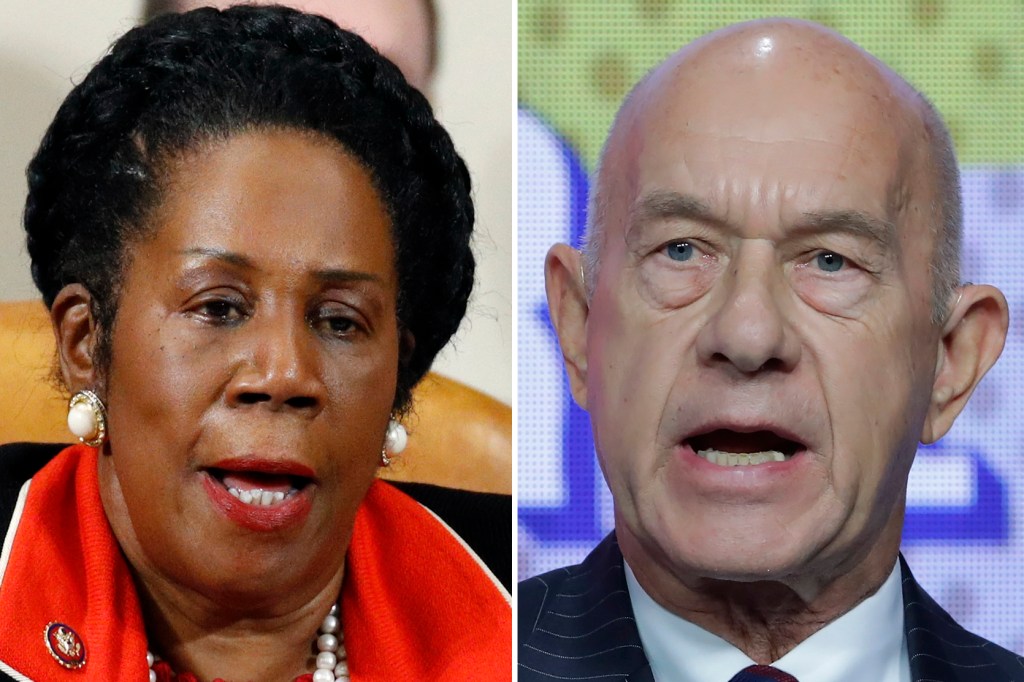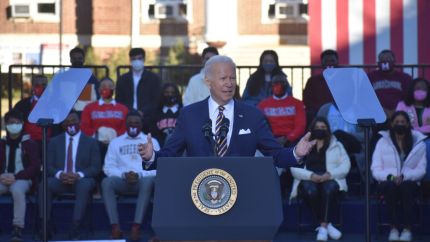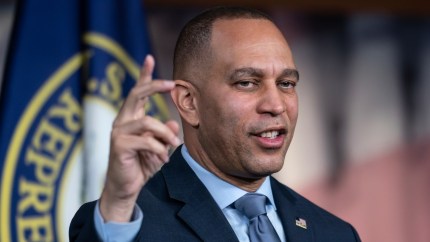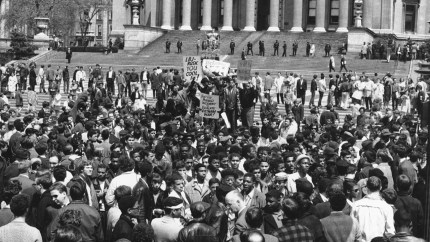U.S. Rep. Sheila Jackson Lee would become Houston’s 1st Black female mayor by winning Saturday’s runoff
Jackson Lee has held her congressional seat for almost 30 years with overwhelming support from Black and Hispanic voters, who together comprise a lopsided majority in her district. She would similarly need a sizable turnout from voters of color throughout the city to win the mayoral race.

WASHINGTON (AP) — It’s down to two candidates in the race to lead the nation’s fourth-largest city. U.S. Rep. Sheila Jackson Lee and state Sen. John Whitmire will face off in Saturday’s runoff election to be the next mayor of Houston.
Whitmire and Jackson Lee, both Democrats, were the top two vote-getters in the Nov. 7 general election, but neither candidate received the vote majority required to avoid a runoff. Whitmire led the 18-person field with 42% of the vote, while Jackson Lee placed second with 36%. The rest of the pack, including one write-in candidate, trailed far behind, with no other candidate breaking the 10% mark.
The winner will replace term-limited Mayor Sylvester Turner, also a Democrat. In the final debates of the campaign held Sunday and Monday, both candidates discussed their plans to address some of the major challenges facing the city, including crime, infrastructure, affordable housing and its budget. Jackson Lee also addressed a leaked audio recording purportedly of her berating staff members, saying she didn’t recall the episode and praising her staff.

The election takes place against the backdrop of new state laws that curb local Democratic control over elections in Harris County, the state’s most populous county, where Houston is located.
Both candidates have been fixtures in Houston-area elections for decades. 2023 marks Whitmire’s 50th year in the Texas legislature, 10 in the state House of Representatives and the last 40 in the state Senate. Jackson Lee was first elected to Congress in 1994 and served on the Houston City Council for four years before that.
Whitmire has far outraised and outspent Jackson Lee, as he did the rest of field during the November election. According to the latest campaign finance filing, he entered the final stretch of the campaign with 14 times as much money as Jackson Lee.
If elected, Jackson Lee would become the first Black woman to serve as Houston mayor.
Here’s a look at what to expect on election night:
Election Day
Houston’s mayoral runoff election will be held Saturday. Polls close at 7 p.m. CT, which is 8 p.m. ET.
What’s on the ballot?
The Associated Press will provide coverage for one contest on Saturday: Houston’s mayoral runoff election.
Who gets to vote?
Any voter registered in Houston may participate in the mayoral runoff election. The deadline to register was Nov. 9.
Decision notes
Off-year runoff elections tend to be relatively low-turnout events. Only 19% of registered voters participated in the 2019 Houston mayoral runoff.
Houston is the state’s largest city and one of the most diverse. Hispanics or Latinos make up 45% of Houston’s population, the largest of any demographic group, followed by non-Hispanic whites at 24% and non-Hispanic Blacks at 22%, according to U.S. Census figures.
Politics
Jackson Lee has held her congressional seat for almost 30 years with overwhelming support from Black and Hispanic voters, who together comprise a lopsided majority in her district. She would similarly need a sizable turnout from voters of color throughout the city to win the mayoral race.
Some of Houston’s largest neighborhoods, such as Alief, Sharpstown, Central Southwest, South Belt/Ellington, Northside/Northline and Golfcrest/Bellfort/Reveille, have majority or near-majority Hispanic populations. Majority-Black neighborhoods include Fort Bend, Acres Homes, South Park and Sunnyside.
High turnout in these areas would be good news for the congresswoman, but a sampling of data from the nine days of early voting suggests that has yet to materialize. For example, Alief, with its near-majority Hispanic population, has almost double the population of the predominantly white Kingwood neighborhood, yet the almost 8,400 votes cast early in-person in the Kingwood voting center more than doubles the 3,000 votes cast early in-person in the two Alief voting centers.
Whitmire, who is white, represents a state Senate district where Hispanics comprise 37% of the voting age population, whites comprise 32%, African Americans 21% and Asians 9%.
The AP does not make projections and will declare a winner only when it’s determined there is no scenario that would allow the trailing candidate to close the gap. If the race has not been called, the AP will continue to cover any newsworthy developments, such as a candidate concession or a declaration of victory. In doing so, the AP will make clear that it has not yet declared a winner and explain why.
Texas has automatic recounts only in the case of a tie vote. The state, however, has liberal laws on candidate-requested recounts. A losing candidate can request and pay for a recount if the margin between the top candidates is less than 10% of the leader’s vote total.
The AP may declare a winner in a race that is eligible for a recount if it can determine the lead is too large for a recount or legal challenge to change the outcome.

What do turnout and advance vote look like?
About 21% of Houston’s 1.2 million registered voters cast ballots in the Nov. 7 election. Turnout for the 2019 mayoral runoff was at 19% of registered voters. Voters in Texas do not register by party.
More than half of Houston voters in the November election cast their ballots before Election Day. Of the nearly 253,000 votes cast, 50% were cast early in-person, while an additional 5% were cast by mail. About 44% of votes were cast in-person on Election Day.
For the runoff election, almost 135,000 voters in Harris, Fort Bend and Montgomery counties had cast ballots by the end of the early voting period on Tuesday. About 91% of this advance vote was cast early in-person, and about 9% was cast by mail.
How long does vote-counting usually take?
In the Nov. 7 mayoral general election, the AP first reported results at 8:17 p.m. ET, or 17 minutes after polls closed. By noon ET the next day, about 99.6% of the total vote had been counted.
Never miss a beat: Get our daily stories straight to your inbox with theGrio’s newsletter.








